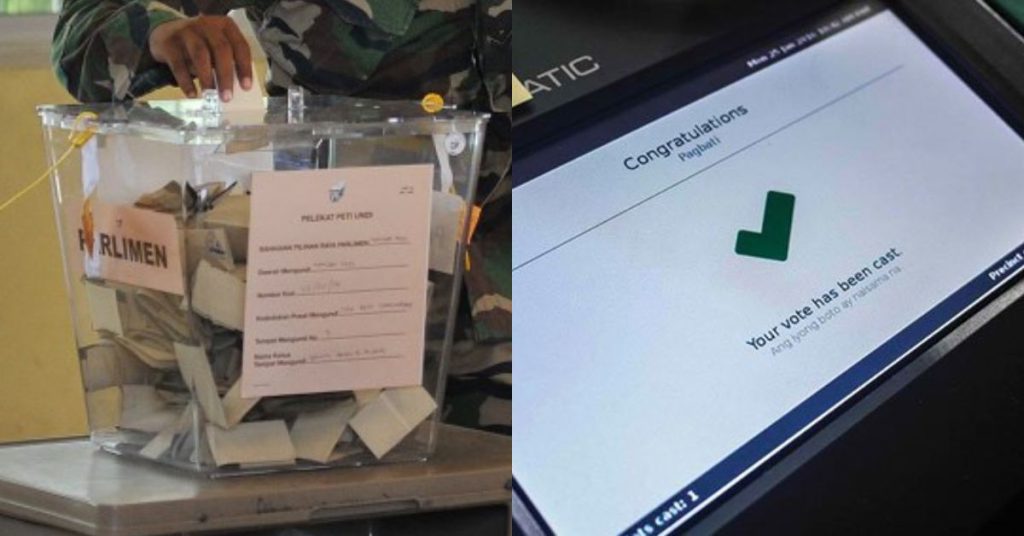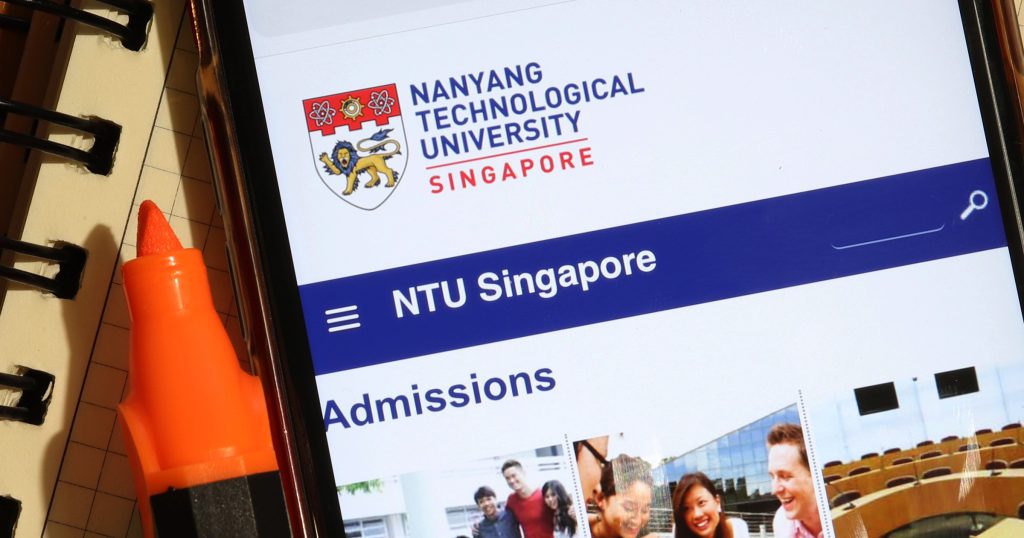With GE15 upon us, many news sites have been sharing tips for first-time voters on how to mark the ballot, fold it, and deposit it into the box.
But isn’t it time we retire the ink-and-paper system and opt for something a little more advanced?
According to The Straits Times, the Malaysian government did look into the feasibility of e-voting in 2020. However, the Election Commission (EC) was still unsatisfied with the confidentiality and security issues involving e-voting.
So, although online and e-voting systems aren’t on the table for GE15, here’s why they might still be an option in the future, especially because paper ballots aren’t completely foolproof either.
Like a well-oiled machine
One of the most obvious advantages of using electronic voting machines is convenience. We’ll no longer need to print millions of ballot papers, as electronic voting machines will allow users to input their votes directly into the machines.
Furthermore, it stops voters from casting wasted or invalid votes, which may waste the time of the polling agent. As such, the vote counting is quicker and more accurate as well.
But understandably, a lot of people have doubts about the legitimacy and security of an electronic voting machine. The machine could have been tampered with by its manufacturer, handler, users, and more. The risks of using such voting machines might even make citizens feel less inclined to vote.
However, electronic voting machines aren’t the only machines that can be implemented at polling stations.

For instance, voting technology company Smartmatic has worked with various countries such as Brazil, Belgium, the United States, and more, to modernise their voting system.
Smartmatic even worked with our neighbouring country, Singapore, since its 2020 general election, using its technology to allow for electronic registrations of voters at polling stations.
This made voting more convenient as election officials did not have to manually strike out each voters’ particulars from a hardcopy register of electors when a voter has voted.
In GE14, there were reports of long queues, resulting in voters having to wait in the hot sun. The EC was even told to extend voting periods because of it.
These machines may help to quell those long queues. But older voters who are less literate with technology might find this to be a problem.
Furthermore, commenters on Smartmatic’s Facebook page show that the company isn’t safe from allegations that it is colluding with politicians.
What about online voting?
Online voting is still rather unprecedented in the world, and there are good reasons for it. The same concerns with electronic voting machines apply here, except online voting might be even less secure. Think hackers and internet outages, among other things.

But the benefit of online voting is clear—accessibility and increased voter participation. Yet, the concerns definitely still outweigh the benefits.
As such, some researchers are turning to a technology that’s newer yet: blockchain.
Blockchain as a solution against voter fraud
The technology behind NFTs and cryptocurrency, blockchains are shared, immutable ledgers that facilitate the process of recording transactions in a network.
This technology is known for its security, with the key word being “immutable”, which means fixed. With blockchain tech, everything is recorded, which means hacks are less of a concern.
Researchers from the University Kebangsaan Malaysia including Dr Uzma Jafar, Mohd Juzaiddin Ab Aziz, and Zarina Shukur wrote a paper on using blockchain technology in electronic voting systems.
Pinpointing that “a single vulnerability” in electronic voting “can lead to large-scale manipulations of votes”, they suggested blockchain technology as an option, calling it “a beautiful replacement for traditional electronic voting solutions with distributed, non-repudiation, and security protection characteristics”.
The paper also argues that blockchain systems may fix shortcomings of traditional elections.
“In traditional voting systems, we have a central authority to cast a vote. If someone wants to modify or change the record, they can do it quickly; no one knows how to verify that record. One does not have the central authority; the data are stored in multiple nodes. It is not possible to hack all nodes and change the data. Thus, in this way, one cannot destroy the votes and efficiently verify the votes by tally with other nodes.”

But all this relies on the availability and accessibility of such technology. A lot of resources may be needed to properly ensure privacy and security of voters.
Plus, the newness and unfamiliarity of such technology makes it a little less approachable, especially on a big scale. Once again, this can backfire and result in less voter confidence and a smaller turnout.
Paper is king?
Have you ever heard of the saying, “If it ain’t broke, don’t fix it”? Although such a mentality can sometimes hinder progress, it might apply in this case.
At the end of the day, paper ballots have been the go-to method of voting for governments across the globe, and there’s a good reason why.
Other countries that have implemented more advanced tech like the United States had dealt with controversies and speculations over their voting machines. Even if these controversies have been proven wrong, they still work to undermine voters’ confidence in such equipment.
Paper, on the other hand, is tangible and familiar, and more importantly, it works. At least, for now.
Of course, technology would help make voting more convenient and accessible, but for now, maybe the way we vote isn’t as important as whether we even vote in the first place.
- Read other articles we’ve written about Malaysia here.
Featured Image Credit: Wiki Commons / Smartmatic











